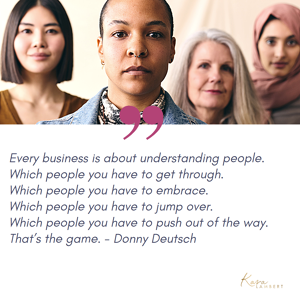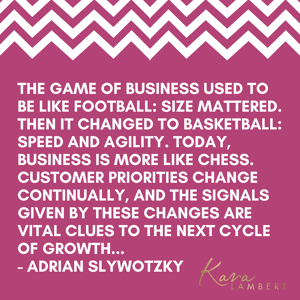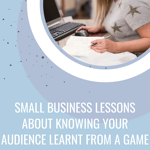The other weekend our youngest, 15, asked to play Cards Against Humanity (Australian Edition) as a family. We’re a very open family as we find our kids are ones to challenge what they see and hear. What I didn’t realise is how often we would be saying “know your audience” as we played.
If you haven’t played the game, the object is to create a sentence by combining the cards you’re dealt with one of the other people playing the game. They don’t know whose cards are which but have to choose the sentence they like best.
What did we mean by “know your audience”?
You need to appeal to what motivates that person.
Hence, “know your audience”.
You also need to understand the language they use and understand.
Hence, ‘know your audience”.
You also need to understand any cultural or age-related norms, beliefs, or references they understand, like, or use.
Hence, “know your audience”.
When you know and understand these things, you were more likely to create a sentence that won the round. The thing is, you didn’t have to check all the boxes, some were better than none and could still have you winning the round. So what does this have to do with running a small business?
The success of our marketing relies on our ability to engage and motivate our audience to take action – “know your audience’.
This can mean with our social media content, videos, blogs, emails, newsletters, sales calls, chats 1:1. We need to “know our audience”. So how do we know and understand the different parts to this?
Know what motivates your audience
What drives your audience to take action? Do you really know that? What are the questions they ask when they start talking about buying from you? Do they have:
– fears you need to overcome
– needs you have to meet
– beliefs you need to overcome, change, or meet
– values you need to overcome, change, or meet
– goals you need to meet?
All of these are what motivate us to take action, (read more in this article) it’s more than just meeting a value for money proposition.
The beauty is that these things can be answered before you make the sale. You can address their motivators in your:
– social media
– blogs
– FAQs
– discovery calls
– quotes
Just like in the game, where we understood and appealed to each other’s beliefs and values (and sense of humour) to win, businesses need to do the same to win their customers over.
Know the language your audience uses
We know what our business does the best, the thing is that our audience may not call it the same. (Sometimes I call a spade a shovel) This is incredibly important when it comes to the language you use in your marketing, in particular your website.
Highly technical content can turn off clients. No one likes to feel stupid, least of all when you are feeling vulnerable about getting help for an issue you have. While I know that some of my language isn’t simple, I also know that my audience is able to understand what I write. (you’re an intelligent bunch)
So it’s important that your language is one that your audience can:
– relate to
– understand
– see itself using
– google when looking for what you sell.
In the game, the person who used the language that was understood, relatable, and relevant won. Your language needs to be the same to win your audience over.
Know the norms, beliefs, or references your audience uses
While this often related to the language you use, it can also relate to the imagery and tags you use. It continues the theme of can your audience see itself’ in your content, images included.
your audience see itself’ in your content, images included.
Norms are common ways of thinking that a group, community, or cohort share. It can also extend to common beliefs and/or values. (My audience has a norm around psychology)
Beliefs are thoughts that we hold as truths and are based on our lived experience. Unlike norms, they don’t have to be shared but you may see trends or commonalities within your audience.
References are generally turns of phrase or idioms used by a group of people. They may come from TV or movies, songs, advertising, or common experiences.
Knowing and using these things, genuinely, shows an audience that they are understood, among peers and are broadly safe. It shows us that we have found ‘our people’.
In the game, the person who understood and used the norms, beliefs, and references in an appropriate manner often won. They were appealing to the audience. Business is no different.
How can Cards Against Humanity help you with your small business audience?
I hope by now you can see that by using the same tactics from winning in the game you can win over your audience. At the end of the day, it doesn’t matter if we are playing a game with friends or family or scrolling social media or searching the internet for an answer to our problem, what often makes content jump out is how we find it appealing to us.
Business owners who understand how to appeal to their audience will always have an advantage. Even in the game of business life. 😉


